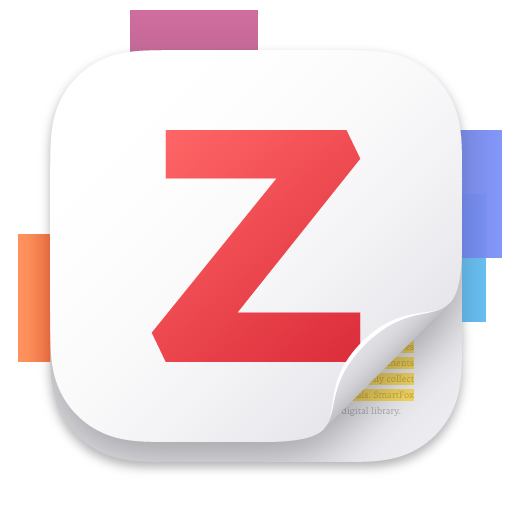
Need help?
Email: library@rosemont.edu
Phone: (610) 527-0200 x2271
 Zotero is a free, open-source citation management system created by the Roy Rosenzweig Center for New Media at George Mason University. Zotero is available via desktop and web-based platforms, as well as through browser extensions for Firefox, Chrome, and Safari. Information added or changed in one platform will automatically sync everywhere else.
Zotero is a free, open-source citation management system created by the Roy Rosenzweig Center for New Media at George Mason University. Zotero is available via desktop and web-based platforms, as well as through browser extensions for Firefox, Chrome, and Safari. Information added or changed in one platform will automatically sync everywhere else.
Unlike EasyBib and Bibme, Zotero does not require a paid subscription to store and organize references or to create bibliographies, which is great if you are working on a complicated project or a project that requires work over the course of a semester or longer. However, it does cap a limit on the amount of free storage at 300 MB.
For more information, please check out Zotero's Support page and the many Zotero tutorials on YouTube.
You can add a wide variety of items to Zotero through the browser extensions in Firefox, Chrome, and Safari.

Depending on the item you are looking at, Zotero will recognize that you are saving a...
| Website | Book | Journal Article | Newspaper Article | Search Results |
 |
 |
 |
 |
Simply click the Zotero extension icon in your browser bar and it will automatically add it to your Zotero and sync with your desktop and web platforms. You will get a box in the bottom-right of the screen that will alert you when it finished adding.
You can also add articles via the Export in RIS format feature in the databases. Although there may be different methods of exporting the information in different databases, the information should all be the same. In this example, we can look at exporting articles in OmniFile, which is an EBSCOhost database.

Once you select the article you wish to add to Zotero, click 'Export' on the right-side of the page. This will bring up a list of formats in which you can export the information. Select RIS (in this case, it is already pre-selected). Click 'Save' and it will save the article's information in RIS format, which you can then upload manually to Zotero via the desktop or web platforms.
If you have the desktop version of Zotero on your computer, you will automatically had the Zotero add-on installed in Word, which can be found under the Zotero tab in Word. You can use this add-on to insert in-text citations for your sources directly into your paper exactly where you want them. Simply click the 'Add/Edit Citation' button to insert the citation. At the end of your paper, you can insert your entire bibliography that you've stored in Zotero by clicking the 'Insert Bibliography' button. Just make sure to double check that everything is properly formatted before you hand it in.
You can also use Zotero to collaborate with others on a group research project. If you create a Group in Zotero, all group members can add items to the group library, where you can organize items just like they were in your personal account. In the group library, you can also edit and cite items in one bibliography.
You can access your documents either through the web version or on your desktop. If you login to Zotero on the web, you can click 'Library' to see all of your selected items. To find specific items, you can search using the search box in the upper-right corner of the page or you can use the Tags feature on the left side to find items by specific topics.

Within your library you can add documents manually or by your document identifier (DOI). You can also move them into collections. These can be as narrow or as broad as you would like, from sources for a specific project to sources related to your major. To add them to a collection, select the item(s) you want to move and select 'Add to Collection.'

To create a bibliography of all the sources you've used for this paper, simply select the sources you want to cite and select the 'Cite' button.

You will be prompted to select the citation style you'd like to use and then will give you a pop-up with the selected items cited in order. Simply copy and paste the bibliography into your document.
 |
 |
If you select an individual item, you will see the bibliographic information. To edit the information of an item, click the 'Edit' button at the top of the page. By clicking 'Edit' you will also be able to add notes and annotations to specific items. You can also create citations for individual items by clicking 'Cite' in this screen.

| Pros | Cons |
|---|---|
|
|